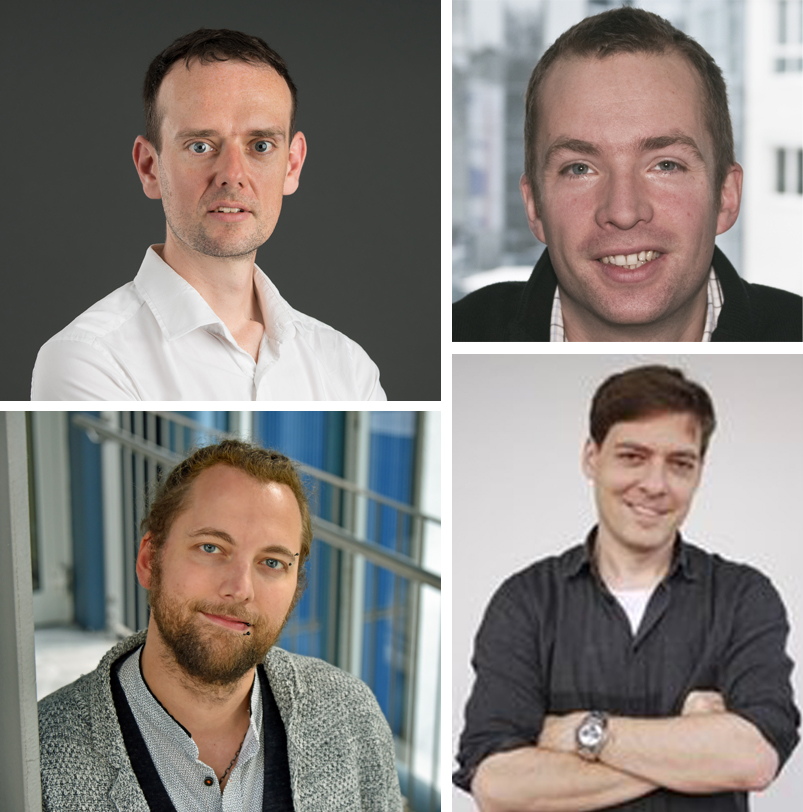We are happy to announce that four new members joined MSCJ! Welcome on board!
J.-Prof. Dr. Sander Münster (FSU: Faculty of Philosophy, top left), Prof. Dr. Michael Habeck (FSU: Faculty of Medicine, top right), J.-Prof. Dr. Kai Lawonn (FSU: Faculty of Mathematics and Computer Science, bottom left), Dr. Stephan Schiffels (MPI for the Science of Human History, bottom right)
J.-Prof. Dr. Sander Münster holds a junior professorship for Digital Humanities at FSU Jena which is focussed on image and object data. He is secretrary of the Time Machine Organisation and coordinates th TU Dresden part of Time Machine CSA.
His research interests are: – Digital 3D Reconstructions, esp. work processes, standards, presentation and discourse integration – 3D digitization of cultural heritage, especially automation and user-generated content – Information systems for 3D models – Science Analysis and Informetrics – Methodological changes through image- and object-related digital humanities in art and architectural history research – Visual research processes and visual perception.
J.-Prof. Dr.Kai Lawonn leads the Visualization and Explorative Data Analysis Group at Friedrich-Schiller-University Jena. The visualization group aims to visualize data for improved exploration and analysis. We work in close collaboration with experts in various fields to develop visualization techniques that support their research. For this, we employ advanced 3D rendering on modern graphics hardware to gain insight into the data.
Prof. Dr. Michael Habeck received a professorship at University Hospital Jena. He is broadly interested in Bayesian inference and its application to experimental data from Biophysics and Structural Biology. He views probability theory as the mathematical framework for making consistent inferences and predictions from incomplete and uncertain information. Therefore, Bayesian methods are powerful tools to support scientific inference and solve engineering problems. Prof. Habeck’s previous and current research focuses on two main topics: Integrative modeling of biomolecular systems and algorithms for Bayesian inference.
Dr. Stephan Schiffels is group leader for population genetics at the Department for Archaeogenetics of the Max Planck Institute for the Science of Human History in Jena. His group at the MPI investigates human history by means of Genetics, and develops computational methods to model and analyse ancient and modern genomic data.
